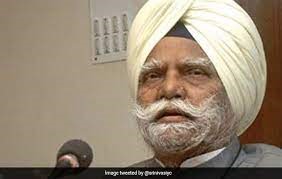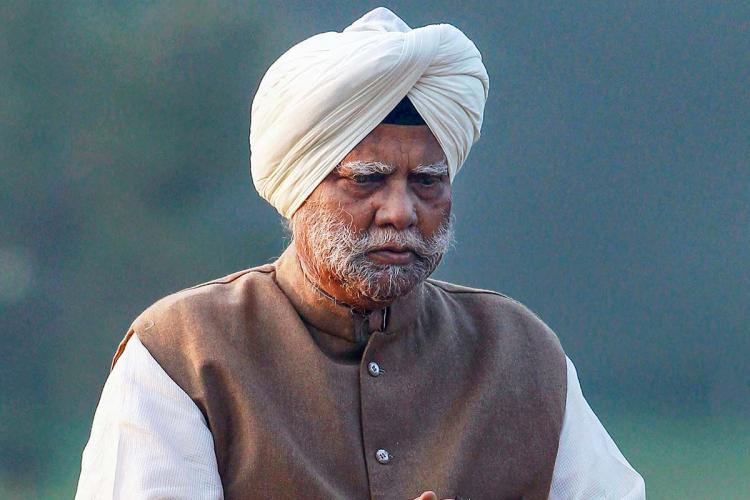Former Indian Union Home Minister, governor of Bihar, and the chairman of the national commission for Scheduled Cates from 2007 to 2010, Buta Singha, senior leader of the Indian National Congress, is no more. The 86 year-old Singh passed away at the age of 86 in India. The American Federation of Muslims of Indian Origin pays its tribute to the champion of human rights causes in India and abroad when Indian needs them more than ever to assure its weak and oppressed security and safety.
He attended the Dalit and Minority International Forum organized by AFMI in collaboration with Ram Vilas Pawan in 2008 to raise the issues of minorities and scheduled castes and tribes. AFMI considered him a friend and voice of justice.
Born in 1934 in a Mazhabi Sikh family, Singh got elected to the Lok Sabha in 1962 from Punjab and subsequently elected for eight more terms. He was close to three Indian prime ministers. He held several cabinet positions besides being the home minister, such as railways, commerce, parliamentary affairs, sports, shipping, agriculture, communications, and housing.

The international convention of Dalits and minorities held in Newyork under his leadership was highly critical of the intergroup violence and called it a threat to the democratic and secular character.
Adopting the New York declaration on the last day of the three-day meet, which over 400 delegates attended from all parts of the world, the convention said the “intergroup violence” posed a severe threat to the democratic secular character of the country. There was a need to combat these disruptive forces unitedly so that the country’s secular fabric does not get eroded, the convention hosted by the American Federation of Muslims of Indian Origin declared in New York. Fertilizers and Chemicals Minister Ram Vilas Paswan, who presided over the concluding session of the convention, said power must come into the hands of socially and economically backward for achieving economic empowerment.
The declaration expressed grave concern over human rights violations in India and stated that minorities and Dalits were the worst sufferers. It also urged the government.

